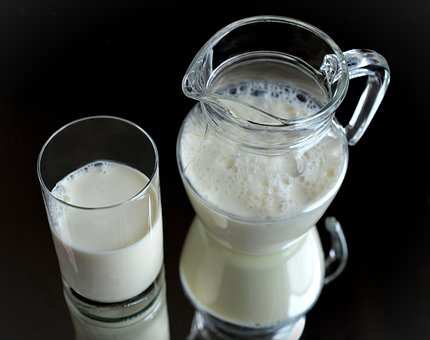Milk is a staple in many diets around the world, and for good reason. Not only is it a delicious and versatile food, but it also provides a wide range of nutritional benefits. In this article, we will explore the nutritional value of milk per 100 ml, as well as whether or not milk per 100 ml is healthy for you.
First, let’s look at the nutritional value of milk per 100 ml. According to the United States Department of Agriculture (USDA), one cup (240 ml) of milk contains the following nutrients:
Calcium: 299 mg (30% of the Daily Value (DV))
Phosphorus: 169 mg (17% of the DV)
Vitamin D: 3.2 mcg (21% of the DV)
Vitamin B12: 0.9 mcg (15% of the DV)
Vitamin A: 385 IU (8% of the DV)
Riboflavin (Vitamin B2): 0.2 mg (12% of the DV)
Niacin (Vitamin B3): 0.8 mg (4% of the DV)
Pantothenic acid (Vitamin B5): 1.3 mg (13% of the DV)
Folate: 14 mcg (4% of the DV)
Choline: 124 mg
In addition to these nutrients, milk also contains smaller amounts of other vitamins and minerals, such as Vitamin K and potassium.
It’s worth noting that the nutritional content of milk may vary depending on the type of milk. For example, whole milk will have slightly more fat and calories than skim milk, but it will also have more of certain vitamins, such as Vitamin A.
Now, let’s consider whether or not milk per 100 ml is healthy for you. One of the main benefits of milk is that it is a good source of calcium, which is essential for maintaining strong bones and teeth. Adequate intake of calcium throughout life, as part of a well-balanced diet, may reduce the risk of osteoporosis in older adults. The Vitamin D in milk also helps to improve calcium absorption, making milk an even more effective tool for promoting healthy bones.
Furthermore, milk is also a good source of other essential nutrients, such as Vitamin D and Vitamin B12, which are important for maintaining overall health and preventing deficiencies. These vitamins play important role for maintaining healthy metabolism, nerve function, and red blood cell production.
However, it’s worth noting that some people may be lactose intolerant, meaning that they have difficulty digesting the sugar found in milk (lactose). Symptoms of lactose intolerance can include bloating, gas, and diarrhea. For people who are lactose intolerant, there are alternatives to cow’s milk, such as soy milk, almond milk, and other non-dairy milks, which can provide similar nutritional benefits without the lactose.
Another thing to keep in mind is that some people may be allergic to the proteins in cow’s milk. Milk allergy symptoms can vary, but they can include itching and swelling in the mouth and throat, hives, and difficulty breathing. If you think you may have a milk allergy, it’s important to talk to your doctor or allergist.
It’s also worth considering that certain group of people need to limit their intake of cow’s milk, such as people with high cholesterol and people with high blood pressure. This is because whole milk and other high-fat milks can contribute to an unhealthy diet and lifestyle if consumed in excessive amounts. So it’s better to choose lower-fat options, such as skim or 1% milk.

 Home
Home Health
Health Diet & Nutrition
Diet & Nutrition Living Well
Living Well More
More












